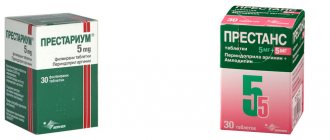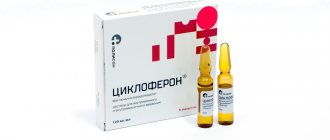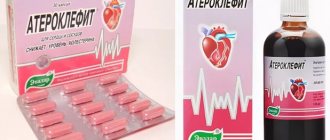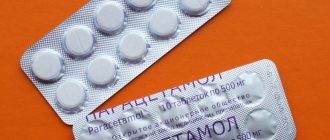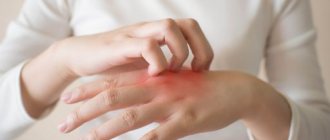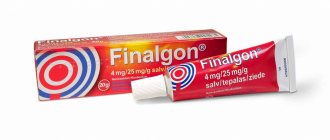Many people face various problems in the gastrointestinal tract. One of these unpleasant ailments is flatulence. Simply put, excessive accumulation of gases. For some, flatulence does not cause big problems and occurs rarely. As a rule, gases can accumulate in the body after a person has eaten any food that provokes their formation. But for some, this unpleasant condition becomes a real problem. It is difficult for a person to be in society. Flatulence can put him in a very awkward position, and also cause severe pain and colic in the abdominal area. And a carminative can help with this. What it is and how to use it will be discussed below.
We are not as worried about ourselves as we are about our children. The problem of bloating also plagues little ones. Especially immediately after birth. It is very difficult for parents to understand what is wrong with their child. The accumulation of gases in the tummy brings suffering to the child, to which he reacts with loud crying. A carminative for flatulence in this case is a matter of first necessity.
Carminative - what is it?
So, as we said above, you can get rid of unpleasant symptoms and normalize the state of the gastrointestinal tract with the help of pharmaceutical drugs, or you can also use herbs. We will talk about some of them to help you speed up the solution to your gas problem.
Carminatives are drugs that reduce and eliminate the amount of gases in the digestive tract and fight flatulence. Using them, you can help yourself and your child.
Enzymes - cures for bloating and gas
Enzyme deficiency, manifested by pain, epigastric discomfort, bloating, flatulence and belching, requires the use of enzyme replacement drugs.
The basis of therapy for pancreatic insufficiency is pancreatin preparations [1].
They contain pancreatic enzymes: amylase, lipase and trypsin. Pancreatin provides a sufficient range of digestive activity and relieves signs of exocrine pancreatic insufficiency, including nausea, rumbling in the abdomen, flatulence and other symptoms [1].
The dose of drugs depends on the degree of enzyme deficiency and the content of lipase in the drug. In addition, the fat content in the diet should be taken into account: the higher it is, the higher the dose of the drug is required. Before the main meal, the dose of enzymes can vary from 25,000 to 80,000 units of lipase. Pancreatin is contraindicated in pancreatitis and intestinal obstruction.
Complex enzymes with bile extract are also indicated for overeating, for example, a combination of pancreatin, hemicellulase and bile components [2].
Bile has proteolytic, amylolytic and lipolytic effects, promotes rapid and complete digestion of food, eliminates the feeling of heaviness and fullness in the stomach, flatulence, shortness of breath due to the accumulation of gases in the intestines, and diarrhea [3]. Bile extract has a choleretic effect, promotes emulsification of fats and improves their absorption, increasing lipase activity. The third component of the combination, hemicellulase , helps break down plant fiber [3].
Complex enzyme preparations containing bile components are contraindicated for cholelithiasis, obstructive jaundice, acute pancreatitis and exacerbation of chronic pancreatitis, as well as for liver failure [3].
Let us add that enzyme preparations are prescribed before or during the festive dinner.
"Simethicone"
It is considered one of the most popular drugs. The components in Simethicone actively fight gas bubbles and relieve tension. The medicine is not absorbed from the gastrointestinal tract, but it protects against the recurrence of flatulence. The discomfort goes away, gases are eliminated naturally.
The drug is available in two forms. These are capsules and suspension. For an adult, 1-2 capsules per day or 25 to 50 drops of suspension are enough. This remedy rarely causes allergies. Use is prohibited only in case of individual intolerance to the components of the drug and intestinal obstruction.
It has analogues. These are the drugs “Espumizan”, “Bobotik”, “Simicol”.
Gastrointestinal motility stimulants
A New Year's diet, replete with fatty, spicy and salty foods, can increase the production of the neuropeptide hormone cholecystokinin [4], which inhibits the motor-evacuation function of the stomach, which is manifested by a feeling of fullness in the stomach, epigastric pain, nausea, and in severe cases, vomiting. To relieve these manifestations, motor stimulants, or prokinetics, are used.
Metoclopramide, known to several generations of doctors and patients, has prokinetic activity.
As an antagonist of dopamine and serotonin receptors, metoclopramide stimulates the motility of the upper gastrointestinal tract, improves the amplitude of gastric contractions, relaxes the pyloric sphincter and duodenal bulb. In addition, metoclopramide has an antiemetic effect, which is due to the blockade of central and peripheral D2-dopamine receptors. However, along with proven effectiveness, the widespread use of metoclopramide is limited by frequent side effects (almost 30% of cases), including headache, drowsiness, hormonal disorders and other adverse events [5].
A modern and well-tolerated alternative to metoclopramide is the highly selective peripheral dopamine D2 receptor blocker domperidone.
By inhibiting dopamine receptors, the drug increases the release of acetylcholine, which provides an antiemetic effect. In addition, domperidone has a gastrokinetic effect, increases the duration of antral and duodenal contractions, accelerates gastric emptying, and also increases the pressure of the sphincter of the lower esophagus. Maximum absorption of the drug occurs when it is used before meals, that is, in our case, before a gala dinner. Domperidone belongs to the over-the-counter group of drugs and is used to treat adults and children, including newborns.
Along with domperidone, itopride is used as a stimulant of gastrointestinal motility.
It has a dual mechanism of action: the drug interacts with D2-dopamine receptors and also inhibits acetylcholinesterase, which leads to activation of propulsive gastric motility. Itopride accelerates the transit of food through the stomach and ensures faster emptying. Unlike domperidone drugs, itopride is available only with a doctor's prescription.
"Gerbion"
This carminative is often used to treat gas in the body. It copes well with pain, removes gases, and helps the gastrointestinal tract. Some of the components in the composition of the drug "Gerbion" are of natural origin; they relieve all symptoms very gently.
It is prescribed 20-30 drops three times a day 30 minutes before meals. But "Gerbion" has a number of contraindications. It may cause an allergic reaction.
The drug "Gerbion" should not be taken for liver problems, brain diseases, during pregnancy and breastfeeding, for problems with alcohol, epilepsy, and should not be given to children.
pharmachologic effect
Carminatives reduce gas formation in the intestines by reducing the surface tension of gas bubbles, allowing them to coalesce and be eliminated naturally. At the same time, the accompanying symptoms of bloating - pain and cramps in the abdomen - disappear.
Herbal carminatives relax smooth muscles, eliminating intestinal spasms.
In addition, herbal carminatives have a moderate anti-inflammatory effect.
Natural carminatives
How often do we forget that we are surrounded by countless medicinal herbs. They can help everyone cope with various ailments. For each disease, in addition to the medicine sold in the pharmacy, you can choose a natural analogue, which often has a much milder effect. And as we mentioned above, for children such treatment in many situations is better than the use of chemicals, which, moreover, may also be of poor quality.
Traditional medicine for flatulence
- Dill. Our grandmothers always used dill, or rather its seeds, when dealing with gas, especially when it concerned children. Anyone can get them, they do no harm, but their benefits have been proven for centuries. So, all you need is to brew 2 tablespoons of dill seeds in half a liter of boiling water, cool and take half a glass 15-20 minutes before meals.
- Caraway. There are many recipes based on it that help with diseases. Cumin seeds are rich in various active substances. You need to brew it in the same way as dill. Just take half the dose. Not a tablespoon, but a teaspoon per glass of boiling water. Drink half a glass 2-3 times a day, or a third.
- Fennel. The fruits are used to prepare the infusion. Take a tablespoon of fennel, pour 250 ml of boiling water, let it brew. Take in the same way as the previous remedy.
- Ginger. The root is used here. This infusion can be drunk as tea. And it's very easy to do. Cut a piece no larger than one centimeter from the root, pour boiling water over it, cool, add honey and lemon.
- Chamomile. Everything is prepared according to the same principle. A spoonful of dry herbs per glass of boiling water. You can additionally use honey, mint, lemon, caraway seeds and dill. It is enough to take 1 tablespoon of this composition 2 times a day.
Carminative drugs: properties, review, indications, contraindications
Flatulence is a common phenomenon, with excessive formation of gases in the digestive tract.
The disorder is accompanied by unpleasant symptoms, including bloating, heaviness, and severe discomfort. For treatment, special medications are used, which include carminative drugs.
To ensure maximum effect when taken and prevent potential harm to health, you should familiarize yourself with the basic rules of use.
Description and properties
Carminatives are a broad group of medications whose action is aimed at eliminating flatulence. This is the only group of drugs of its kind that is intended specifically for the treatment of this disorder. The drugs reduce the formation of gases in the gastrointestinal tract and accelerate their elimination from the intestines naturally.
The benefits of carminative drugs are explained by the following properties:
- Normalizes normal intestinal motility
- Does not increase the acidity of stomach contents
- Relieves bloating due to the natural removal of excess gases (does not extinguish foam and does not bind gases, increasing the duration of their elimination)
- Have a moderate laxative effect
- Mainly made from natural ingredients
- Antispasmodic effect (due to which the pain syndrome disappears)
- Have an anti-inflammatory effect
- Increase enzyme activity
In addition, some carminatives have an enveloping effect. Thanks to this, such medications are allowed to be taken by patients suffering from ulcerative lesions of the stomach or intestines. Taking other medications for flatulence is contraindicated for such patients, as they can aggravate the course of the disease.
In most cases, the drugs in this group are made from natural ingredients. In view of this, they have a small number of contraindications and are often used in pediatrics.
Unlike sorbents and other drugs used for flatulence, carminatives do not remove beneficial microflora from the intestines. Therefore, the likelihood of developing a side effect due to dysbiosis is excluded even with long-term use of drugs.
In general, carminatives are a group of medications with a wide spectrum of action, used to reduce gas formation.
List of drugs
Currently, there are several types of carminative drugs. They differ depending on their origin (plant-based and synthetic), and also have different active ingredients.
Direct-acting drugs are most effective. They act on gas bubbles, provoking their destruction. Due to this, bloating is relieved, and excess gas leaves the body naturally. The most common active ingredients are simethicone and dimethicone. There are also a number of medications with similar properties.
Popular carminatives:
- Simethicone. A carminative with the active ingredient of the same name. Available in the form of a liquid suspension intended for internal use. There is also Simethicone in capsules. The medicine is allowed to be taken by children over 6 years of age. The dosage is prescribed individually, taking into account the indications and characteristics of the patient.
- Simikol. A drug based on semiticone, which has a pronounced carminative effect. Used to treat flatulence and similar conditions, dyspeptic disorders. Available in the form of drops for oral use. The drug should be taken 0.3-0.6 ml before meals to prevent excess gas formation.
- Espumisan. A medicine with simethicone, which is available in the form of soft capsules and liquid emulsion. The components of the drug destroy gas bubbles and accelerate excretion from the intestines. Prescribed for various pathological conditions, in preparation for operations or diagnostic procedures. Admission is allowed for children from the age of six.
- Disflatil. A drug intended for the complex treatment of digestive disorders. Thanks to the simethicone contained in the composition, it has pronounced carminative properties. Available in the form of a liquid suspension. Allowed for use in childhood, including newborns.
- GaxonDrop. A carminative drug whose active ingredient is dimethicone. Available in the form of a liquid emulsion intended for internal use. Take 1 spoon twice a day for patients over 12 years of age. In children, use is contraindicated due to the risk of side effects.
- Zeolate. A medicine with a pronounced carminative effect, used for dyspeptic disorders, flatulence, and similar pathologies. Available in tablet form. Long-term use may cause allergic reactions. To relieve bloating, it is enough to take 1-2 tablets, best after meals or before going to bed.
- Bimaral. Carminative and antiemetic in the form of a liquid solution. The medicine stabilizes intestinal motility, increases peristalsis, due to which it has a laxative and carminative effect. Relief from nausea and vomiting occurs due to antispasmodic effects.
- Almagel Neo. A drug whose action is aimed at reducing the acidity of gastric juice. Contains simethicone, which is why it has carminative properties. Prescribed for ulcerative lesions of the gastrointestinal tract, colitis, reflux, and other pathologies.
In addition, you can purchase herbal remedies with a carminative effect at the pharmacy. Such medications have a gentle effect and can be used for long-term use, including for prophylactic purposes.
Herbal carminatives include:
- Hibiscus extract
- Cumin fruits
- Rose hip
- Fennel fruit
- Dill seeds
It is important that medications are taken in full accordance with the instructions. Therefore, before using the medicine, it is important to familiarize yourself with the basic information, in particular, to make sure that there are no age or other restrictions.
Medicines for adults and children
Most of the medications presented are intended for use by adults. Carminative drugs are allowed for children from 6 years of age. Taking it at an earlier age may cause side effects. To eliminate this possibility and at the same time help the baby get rid of bloating, you should use carminatives intended for use in pediatrics.
These include:
Espumisan Baby. Designed to relieve bloating and eliminate colic in infants. It is advisable to take the medicine for newborns and children under 2 years of age. Available in the form of a liquid emulsion, which should be diluted with water before use. The medicine is used 4-5 times a day until the symptoms disappear completely.
- Sub Simplex. A medicine with a carminative effect based on simethicone. Used to relieve symptoms of flatulence and other gastrointestinal disorders in newborns. For children under 1 year of age, the medicine is given in diluted form. A child from 1 to 6 years old is allowed to take the suspension in its pure form, 15-20 drops.
- Kuplaton. The drug is intended for the treatment of flatulence in newborns caused by the formation of their own intestinal microflora or swallowing air during breastfeeding. To relieve symptoms, it is enough to take 4 drops 4 times a day. The liquid is added to milk or drinking water. Children over 10 years old can be given Kuplaton in capsule form.
- Bobotik. Liquid suspension containing simethicone. Prescribed to children aged 4 weeks and older. The maximum permissible single dose is 8 drops. Children from 2 to 6 years old can take 14 drops. Therapy is continued until symptoms disappear completely.
It is important to remember that the reasons for the development of flatulence in adults and children are different. Therefore, it is necessary to wisely choose a drug with a carminative effect, taking into account age specifics.
Indications for use
Carminatives have a wide range of uses. This is because excess gas formation can occur for various reasons. In addition to treatment, medications are used for preventive purposes, including before diagnostic procedures.
The main indications for the use of carminative drugs:
- Flatulence due to consumption of foods that increase gas formation
- Following strict diets containing dairy products
- Lack of fluid in the gastrointestinal tract
- Eating food that enhances the processes of fermentation and putrefaction in the gastrointestinal tract
- Prolonged constipation, including due to intestinal pathologies
- Bloating that occurs after abdominal surgery
- Rapid consumption of food while swallowing air (aerophagia)
- Intoxication, including household chemical products
- Gastrointestinal colic in newborns
- Severe forms of dysbacteriosis
- Dyspepsia disorders due to pancreatitis, gastritis, pathologies of the hepatobiliary system
- Abnormal intestinal motility disorders
Carminative medications can be prescribed in combination with other medications as part of complex therapy. In such cases, the medicine is used for a wide range of pathologies accompanied by flatulence. Carminatives can be prescribed simultaneously with sedatives, antispasmodics, laxatives, sorbents, and enzyme preparations.
Thus, taking carminative drugs is advisable if there are appropriate indications.
Contraindications for use
Like any other medications, carminatives have a number of contraindications under which their use is prohibited. Absolute and relative contraindications are conventionally distinguished. In the first case, taking medications is prohibited due to potential harm to the body. In case of relative contraindications, use is possible, provided that the expected benefit outweighs the possible harm.
Absolute contraindications:
- Pathologies accompanied by intestinal obstruction
- Food and other poisoning accompanied by intense vomiting
- Cholestasis due to blockage of the bile ducts due to cholelithiasis
- Tumors that obstruct the passage of stool through the intestines
- Extensive parasitic infestations that disrupt intestinal patency
- Congenital anomalies and malformations of the gastrointestinal tract
- Prolonged constipation accompanied by symptoms of fecal self-intoxication
- Hypersensitivity to components included in medications
- Pregnancy and lactation (for some simethicone-based drugs)
Possible age restrictions should also be taken into account. Most carminative medications are prescribed to children over 6 years of age.
Therefore, at an earlier age, use is prohibited, with the exception of drugs that are intended directly for pediatric use.
Relative contraindications:
- Pregnancy period (taking drugs Bobotik, Meteospasmil is allowed)
- Pathologies of the excretory system organs
- High blood pressure
- Traumatic brain injuries
- Inflammatory bowel diseases, including hemorrhoids
- Epilepsy
- Acute forms of hepatitis
- Severe alcohol dependence
Carminatives are prescribed with caution in cases of hypersensitivity to fructose and renal failure. During lactation, the use of carminatives is not contraindicated, since they are not absorbed into the blood, and therefore cannot penetrate into breast milk.
The described medications should be taken only in the absence of contraindications.
While watching the video you will learn about flatulence.
Carminatives are the main group of medications for treating symptoms of flatulence. The action of the drugs is aimed at destroying the bubbles and removing gases naturally. When choosing a medicine, it is necessary to take into account the age characteristics of the patient and the origin of the pathology.
Source: //MoreHealthy.ru/material/vetrogonnye-preparaty-svoystva-obzor-pokazaniya-protivopokazaniya-4007.html
Prevention of flatulence
Of course, in order not to provoke the formation of excess gases in the body, you can avoid eating many foods. But for most people, this is not an option, and it is unrealistic.
You can do it much simpler. Drink the infusions and decoctions that we recommended above, not only at the moment when you already have unpleasant symptoms or pain, but also as a preventive measure. All of them do not taste unpleasant and do not cause disgust. And the effect of use will be obvious. The fact is that natural components help cope with ailments and additionally saturate the body with vitamins and beneficial elements.
We think we have answered the question of what a carminative means and what its principle of action is.
